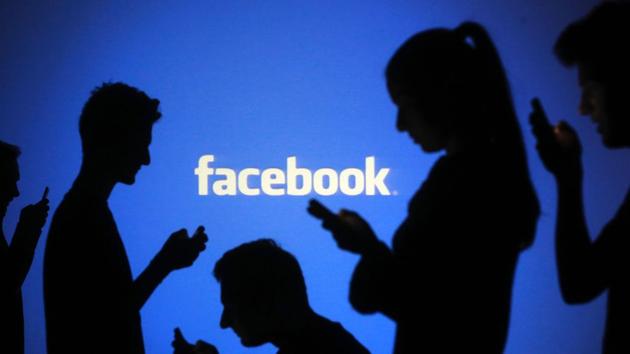(单词翻译:单击)
听力文本
Facebook Now Rates Users on Trustworthiness
Facebook is now rating users on how trustworthy they are in identifying and reporting real and false news.
The ratings system was first reported by The Washington Post. A Post reporter interviewed Facebook product manager Tessa Lyons, who leads the company's efforts to fight misinformation.
Lyons told the newspaper the system was developed and put into place over the past year.
In January, Facebook announced a similar system to produce ratings for the trustworthiness of news sources. At that time, Facebook founder Mark Zuckerberg said those ratings would be based on information provided by Facebook users.
Zuckerberg said news sources receiving higher trustworthy ratings from the community would be prioritized in the social media service's News Feed.
The new ratings system is designed to predict how effective a user is at identifying and reporting false news stories. Every user is given a rating between zero and one, the Post reports.
Lyons told the newspaper such a system is necessary because some users are incorrectly reporting whether a story is true or false.
It's "not uncommon for people to tell us something is false simply because they disagree with the premise of a story or they're intentionally trying to target a particular publisher," Lyons said.
As an example, she said a user's trustworthiness rating would go up if they previously reported a news story as false, and the story was later confirmed as false by an independent fact checker.
In addition to information from users, Facebook uses machine learning systems to choose stories to be checked for truthfulness. The company has a partnership with several major news and fact-checking organizations that examine news stories reported as possibly being false.
Lyons noted that the numbered rating is not the single measure Facebook uses to judge a user's overall trustworthiness. She said the company also uses other "signals" to rate users, but did not provide further details.

Efforts to fight misinformation
In addition to taking steps to fight misinformation, Facebook has also sought to limit efforts by foreign organizations to influence the U.S. political process. Facebook previously found evidence that false accounts created in Russia and other nations were used to try to influence American voters in the 2016 election.
On Tuesday, Facebook said it had identified and removed hundreds of accounts linked to Russia and Iran. It said the accounts were part of separate disinformation campaigns on Facebook.
In announcing the findings, Facebook chief Zuckerberg said there was still a lot the company does not know about the operations. However, he described the campaigns as "sophisticated" and well-financed efforts that are likely to continue.
"You're going to see people try to abuse the services in every way possible... including now nation states," Zuckerberg said.
Spokesmen for both Iran and Russia denied any state involvement in the activities described by Facebook.
This week, American software maker Microsoft reported it had taken control of several websites created by hackers linked to Russia's government. The company said the websites were made to look like they belonged to the U.S. Senate and conservative research groups. But they were actually false websites created in an effort to gather personal details of users.
Microsoft warned the hacking incidents were further evidence that Russia is expanding its attacks before U.S. congressional elections in November.
I'm Bryan Lynn.
重点解析
重点讲解:
1. be based on 以…为基础;
The selection process is based on rigorous tests of competence and experience.
选拔过程是基于对能力和经验的严格测试。
2. disagree with 不同意;有分歧;意见不合;
I disagree with the premise that economic development has priority over the environment.
我不赞成经济发展应优先于环境保护这个前提。
3. in addition to 另外;加之;除…之外;
Different rules and policies apply in different countries, in addition to international rules for banking.
除了国际规则之外,在不同的国家要应用不同的规则和策略。
4. belong to 属于;归…所有;
Earls, princes, and kings belong to the nobility.
伯爵、亲王和国王属于贵族。
参考译文
脸谱网开始为用户可信度评分
脸谱网现在开始对用户在识别并报告真假新闻方面的可信度进行评分。
《华盛顿邮报》最先对这个评分系统进行了报道。《华盛顿邮报》一名记者采访了脸谱网产品经理特萨·里昂,她在脸谱网负责打击误导信息。
里昂在采访中表示,脸谱网在过去一年开发并落实了这个评分系统。
今年1月,脸谱网公布了一个为新闻来源可信度提供评分的类似系统。当时,脸谱网创始人马克·扎克伯格表示,评分将以脸谱网用户提供的信息为依据。
扎克伯格表示,从用户那里得到可信度高评分的新闻来源将被优先放到新闻推送中。
而这个新推出的评分系统旨在预测用户在识别和举报假新闻方面的有效性。据《华盛顿邮报》报道,脸谱网将用从0到1之间的数字标记每名用户的可信度。
里昂对《华盛顿邮报》表示,实行这种评分系统很有必要,因为一些用户会错误地报告新闻的真假。
里昂表示,“人们向我们进行谎报并不罕见,仅仅是因为他们不认同某些内容,或者是为了针对某家出版商。”
举例来说,如果用户此前举报某条新闻是假新闻,该新闻后来被独立事实核查员证实的确是假新闻,那用户的可信度评分就会上升。
除了从用户那里获得信息,脸谱网还会用机器学习系统来选择接受可信度核查的新闻。脸谱网已与多家主流媒体和事实核查组织建立合作伙伴关系,这些核查组织将对被举报为假新闻的新闻进行检查。
里昂指出,这一评分不是脸谱网用来判断用户总体可信度的唯一标准。她说,脸谱网还会用其他“信号”来为用户评分,不过她并没有进行详细说明。
打击误导信息的努力
除了采取措施打击误导信息,脸谱网还设法对影响美国政治进程的外国组织的活动进行限制。脸谱网此前发现了俄罗斯和其他国家注册虚假账号的证据,这些虚假账号被用来试图影响美国选民在2016美国总统大选中的投票。
周二,脸谱网表示他们识别并清除了数百个与俄罗斯和伊朗有关的账号。该公司表示,这些账号在脸谱网上进行了多起造谣行动。
脸谱网总裁扎克伯格在宣布调查结果时表示,脸谱网对这些行动仍有很多不了解的地方。但是,他称这些行动“复杂”且有雄厚资金支持,很可能会继续下去。
扎克伯格说,“你们会看到人们试用一切可能的方法去滥用服务,包括现在各国采取的行动。”
对脸谱网描述的国家干预行动,伊朗和俄罗斯的发言人均予以否认。
本周,美国软件制造商微软表示,该公司已控制了多家与俄罗斯政府有关的黑客创建的网站。微软表示,这些网站表面看起来隶属于美国参议院和保守派研究组织。但实际上这些是用来收集用户个人详细信息的假网站。
微软警告称,这些黑客攻击事件进一步证明,在11月举行美国国会中期选举之前,俄罗斯正在扩大攻击范围。
布莱恩·林恩报道。
译文为可可英语翻译,未经授权请勿转载!


